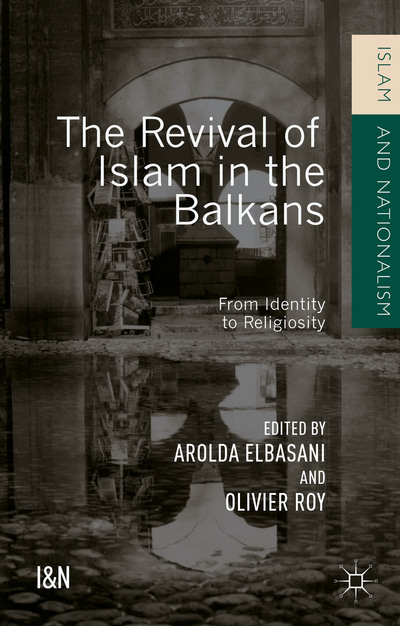The Revival of Islam in the Balkans. From Identity to Religiosity
di Arolda Elbasani, Olivier Roy
casa editrice: Palgrave Macmillan
anno di pubblicazione: 2015
collana: Islam and Nationalism
pagine: 280
Disponibile anche in formato eBook

This book challenges top-down analytical frameworks that view Islam in the Balkans as a repository of ethno-national identities and/or a potential ‘depot’ of conflict between and among nations. It outlines a new conceptual framework in which believers are endowed with the capacity to choose and resist broad classifications amidst the competitive market of religion following the fall of communism. Written by researchers with extensive and hands-on experience in the field, the book provides cross-country evidence on the reconfiguration of state-organized religious fields and the emergence of new actors and forms of religiosity. Combining a fresh analytical perspective with rich empirical analysis, the book furthers the understanding of Islam particularly with regard to the relation between state and religion, the role of foreign influences, the diversity of actors who speak for Islam, the processes of individualization of faith, and the evolution and traits of Islam in the European context.
Arolda Elbasani is Jean Monnet Fellow at the European University Institute, Florence. Her research interests and publications lie at the intersection of European integration, institution-building, political corruption, Islamic politics, Islam in Europe, and comparative democratization with a focus on Southeast Europe and Turkey.
Olivier Roy is Professor at the European University Institute, Florence. He is the author of numerous books on topics related to Political Islam, the Middle East, Islam in the West and comparative religions including The Failure of Political Islam (1994), Globalized Islam: The Search for a New Ummah (2004) and Holy Ignorance (2010).
TABLE OF CONTENT
Acknowledgments
Notes on Contributors
Introduction: Nation, State and Faith in the Post-Communist Era; Arolda Elbasani
PART I: THE PREVAILING PUBLIC DISCOURSE ON ISLAM
1. Islam and Orientalism in Contemporary Albania; Enis Sulstarova
2. Anti-Islamic Public Discourse in Contemporary Greece: The Reproduction of Religious Panic; Alexandros Sakellariou
3. Faith and Politics in Kosovo: The Status of Religious Communities in a Secular Country; Jeton Mehmeti
PART II: MUSLIMS’ PURSUIT OF FAITH AND RELIGIOSITY
4. The Loudspeaker of Faith in the ‘Calm’ City: Islam and Urban Diversity in the Contemporary Balkans; Jelena Tošić
5. Muslim Women’s Dress Practices in Bosnia-Herzegovina: Localising Islam through Everyday Lived Practice; Andreja Mesarič
6. The Multiple Voices of Bulgaria’s Unofficial Islamic Leaders; Laura J. Olson
7. Love and Boundaries: Inter-Faith and Inter-Ethnic Relationships Among Macedonian-Speaking Muslims; Anna Zadrożna
8. ‘Holiness’ Constructed: Anonymous Saints in the Popular Traditions of Muslim Roma Communities in the Balkans; Ksenia Trofimova
PART III: RELIGIOUS BELIEFS, PUBLIC ARGUMENTS AND LEGITIMACY
9. Rhetorical Strategies of Kosovo’s Imams in the Fight for ‘Women’s Rights’; Behar Sadriu
10. Public Expressions of Bosnian Muslim Religiosity and Lived Faith: The Cases of Friday Prayer and the Hijab; Julianne Funk
11. Faith, Fatherland, or Both? Accommodationist and Neo-Fundamentalist Islamic Discourses in Albania; Cecilie Endresen
Conclusions; Olivier Roy
Index



